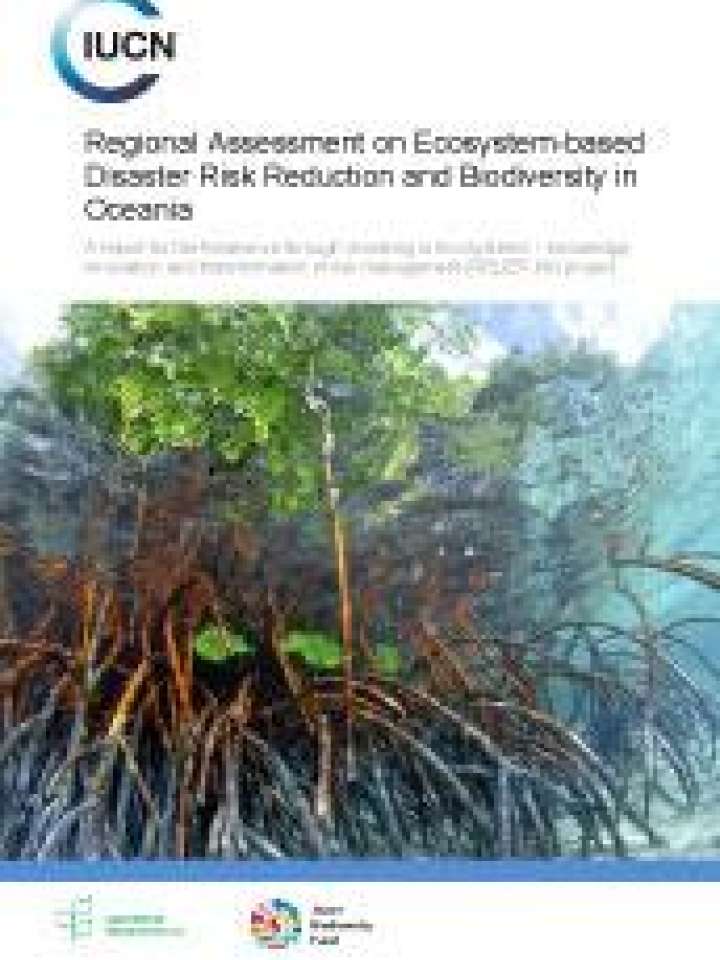Regional Assessment on Ecosystem-based Disaster Risk Reduction and Biodiversity in Oceania
This regional assessment document discusses ecosystem-based disaster risk reduction (Eco-DRR) and its linkages with biodiversity in Oceania. It highlights key entry points and opportunities to catalyse actions for Eco-DRR that embraces the importance of biodiversity and ecosystems.
The assessment mostly covers seven focal countries: Tuvalu, Vanuatu, Solomon Islands, Fiji, Papua New Guinea (PNG), Samoa and Republic of Marshall Islands. These countries were considered to be the most vulnerable to hazards.
A desk based literature review of scientific literature, national reports, project and policy documents was conducted to determine the status of ecosystem-based disaster risk reduction (EcoDRR) in Oceania, the role of biodiversity in Eco-DRR and conversely how Eco-DRR contributes to biodiversity in the region. Regional initiatives and frameworks in Eco-DRR were also reviewed. The economic case for Eco-DRR implementation was also examined.
The report further formulates recommendations to further integrate biodiversity conservation and climate change adaptation in Eco-DRR, including:
- Promoting inter-sectoral collaboration to improve policy implementation and translate knowledge into actions.
- Raising awareness on the importance of integrated ecosystem-based approaches for CCA and DRR among governments, civil society and practitioners.
- Integrating both biodiversity and Eco-DRR into national planning for sustainable development.
- Providing more regional and national evidence to prove that Eco-DRR and the maintenance of ecosystem structure and function can provide cost-effective options for DRR, in order to ensure government buy-in.
- Recognising the role of people and their social systems in Eco-DRR as traditional knowledge and practices of Pacific indigenous peoples have contributed to their coping strategies during times of natural disasters.
Explore further
